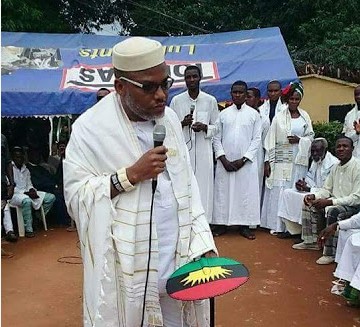The son of late Dim Chukwuemeka Ojukwu’s second-in-command during the 1967 civil war in Nigeria, Philip Effiong Jr., 
has faulted the approach adopted by Nnamdi Kanu and the Indigenous People of Biafra (IPOB) in the renewed agitation for an Independent Biafra state.
According to him, the Biafra agitators unwittingly bought into the propaganda sold by those opposed to Biafra by making their agitations seem like an Igbo affair.
He said the Biafra agitators from the South east were not carrying along the minorities, who also participated and made sacrifices during the civil war.
Effiong Jr. said this during an interview with Hassan Arouni of BBC’s Focus on Africa.
He said: “I think there is something fundamentally wrong with their (IPOB) approach which is the fact that they have made it an Igbo problem.
“They bought into the propaganda that the enemy tried to sell and that propaganda is ‘the Igbo people are out to take over Nigeria and dominate the minorities that around them. They are evil people and they try to disunite us.’ For people (IPOB) to make it as an Igbo problem buys into that propaganda.
“Of course, minorities were extremely involved, died, suffered, and played major roles.”
On his memories of the Biafra civil war, Effiong Jr. said: “I remember the plane bombing; that is one thing that stands out. I remember the planes bombing and one having to run away from them.
“Enugu was shelled. I remember I was playing with my brothers with thought it was thunder at first. Then we realized shells were landing and the movements were just constant. I think we must have lived in at least five different cities during the war.
“Most of the outside world did not have an inkling of what was happening inside Biafra. Some did. And you have got to give credit to places like Ireland; the church made that possible. You know the Catholic Church has had a long philanthropic tradition and that helped spread the word.”
On whether, Nigeria learnt any lesson from the civil war, he said: “Nigeria and Nigerians have not learnt their lessons from the Biafra war.
“We are perhaps more divided that we ever where. First of all the war wasn’t about unity but it even divided us more. Even today, people can’t really talk about having friends from other ethnic groups.
“When you look at elections for instance or the fact that went and lived in a different state; there would be restrictions in the kind of positions I could hold. You find out that the concept of unity has not actually been realized.”







